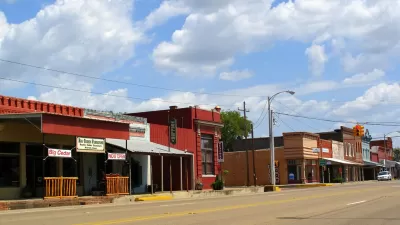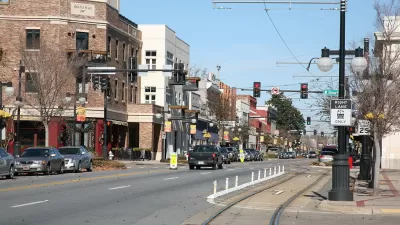The oil and gas industries want to see wastewater regulations loosened as they consider pumping the water into streams and rivers.

The Environmental Protection Agency is looking into making it easier for oil and gas companies to put wastewater from oil drilling into river and streams. The practice is currently permitted under federal law, but drillers rarely do it as the costs involved in treating the wastewater to meet mandated water standards is high.
“The primary question facing the EPA is whether water standards can be adjusted so oil and gas companies can economically treat wastewater to be pumped into the water supply without contaminating drinking water supplies or killing off local wildlife,” reports James Osborne.
The oil industry is facing the challenge of what to do with the large amounts of wastewater produced from drilling. Seismic and geological concerns about the effects of pumping the water back into the ground have forced operators to send wastewater to disposal sites.
Environmental advocates say the EPA does not have the scientific information about treating wastewater that it needs to make an informed decision. Still, oil and wastewater industry lobbyists are pushing for an ease on regulations. “Their primary case to the EPA is that the treated wastewater could provide a valuable resource for drought-ravaged water supplies in the western United States, with potential uses for agriculture and industry, and even drinking water supplies,” says Osborne.
FULL STORY: EPA weighs allowing oil companies to pump wastewater into rivers, streams

Planetizen Federal Action Tracker
A weekly monitor of how Trump’s orders and actions are impacting planners and planning in America.

San Francisco's School District Spent $105M To Build Affordable Housing for Teachers — And That's Just the Beginning
SFUSD joins a growing list of school districts using their land holdings to address housing affordability challenges faced by their own employees.

The Tiny, Adorable $7,000 Car Turning Japan Onto EVs
The single seat Mibot charges from a regular plug as quickly as an iPad, and is about half the price of an average EV.

Trump Approves Futuristic Automated Texas-Mexico Cargo Corridor
The project could remove tens of thousands of commercial trucks from roadways.

Austin's First Single Stair Apartment Building is Officially Underway
Eliminating the requirement for two staircases in multi-story residential buildings lets developers use smaller lots and more flexible designs to create denser housing.

Atlanta Bus System Redesign Will Nearly Triple Access
MARTA's Next Gen Bus Network will retool over 100 bus routes, expand frequent service.
Urban Design for Planners 1: Software Tools
This six-course series explores essential urban design concepts using open source software and equips planners with the tools they need to participate fully in the urban design process.
Planning for Universal Design
Learn the tools for implementing Universal Design in planning regulations.
Smith Gee Studio
City of Charlotte
City of Camden Redevelopment Agency
City of Astoria
Transportation Research & Education Center (TREC) at Portland State University
US High Speed Rail Association
City of Camden Redevelopment Agency
Municipality of Princeton (NJ)





























